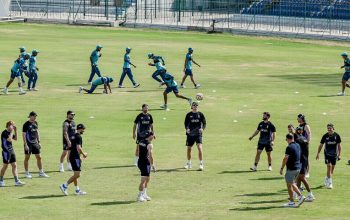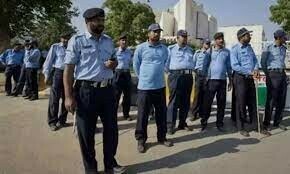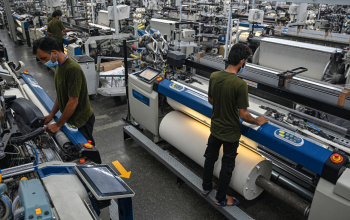The Supreme Court's written order explaining the rationale to decline to constitute a full court to hear petitions against the trial of civilians in military courts has left many puzzled while some judges dissented over the discretionary powers of the chief justice to form benches.
The confusion stems from uncertainty over whether the order was a majority decision or a unanimous one, as there was no space for the signatures of the six bench members in the written order.
Moreover, a lawyer described the order as "mysterious," noting that while the application is not dismissed, it is rather disposed of.
The written order, issued by a larger bench of six judges led by Chief Justice of Pakistan Umar Ata Bandial, endorsed the bench's earlier judgment affirming the chief justice was the master of the roster, with the prerogative to constitute benches.
"The members of the bench arrived at the conclusion that it has already been held by this court…that it is the sole prerogative of the Chief Justice of Pakistan to constitute benches," the order states, with the space for judges' signatures missing.
According to the order, the CJ, as the master of the roster, has considered the matter and concluded that the formation of a full court bench to hear the titled petitions is not feasible under the circumstances. It further explained that due to the summer vacations, several honourable judges of the court were unavailable for the constitution of a full court bench, excluding judges who have declined to hear these petitions.
The present nine-judge bench was formed when these matters were taken up. Two judges, Qazi Faez Isa and Sardar Tariq Masood, declined to sit on the bench, while one, Syed Mansoor Ali Shah, recused himself on the objection raised by the Federation of Pakistan.
Divide
However, the apex court appears divided on the matter, with some judges, including CJP Bandial and Justice Munib Akhtar, endorsing the view that the chief justice is the master of the roster and has the authority to form benches.
On the other hand, Justice Qazi Faez Isa holds a different stance, disagreeing with the concept of "master of roster" as it was not found in the constitution or the law.
"With respect, the Honorable Justice Munib Akhtar's earlier note was not a legal precedent. In any event, the said reasoning is without a constitutional or legal foundation," said Justice Isa, raising questions about the term.
Similarly, Justice Syed Mansoor Ali Shah and Justice Jamal Khan Mandokhail, in their judicial order regarding the delay in elections, aimed to "revisit the power of the one-man show enjoyed by the office of the Chief Justice of Pakistan" in order to strengthen the institution and ensure public trust and confidence in the apex court.
Their order highlighted that the court should not rely solely on the decisions of one individual but rather be regulated through a rule-based system approved by all judges of the court as stated in Article 191 of the Constitution.
It emphasised the need for a structured exercise of jurisdiction, including the constitution of benches, to maintain good governance and adhere to modern democratic norms.
Another retired judge, Justice Manzoor Ahmad Malik, commented that the term "master of roster" cannot be interpreted as giving the chief justice unlimited discretion when forming benches. He asserted that the discretion vested in the office of the chief justice should be exercised in a structured manner according to the Supreme Court Rules.
Referring to the reasoning applied in Note No. 4 issued by the larger bench, Justice Isa noted that it referred to the CJP as the "Master of Rolls," a term not found in the Constitution, any law, or even in the SC Rules.
"On the pretext that the chief justice is the Master of Rolls and empowered to do as he pleases, the 4th April Note proceeds to rely on an earlier note authored by [Justice] Munib Akhtar, stating that it 'clearly and categorically lays down the rule that the suo motu jurisdiction of this court can only and solely be invoked by the CJP,'" added Justice Isa.
Read the full story at the express tribune website.


